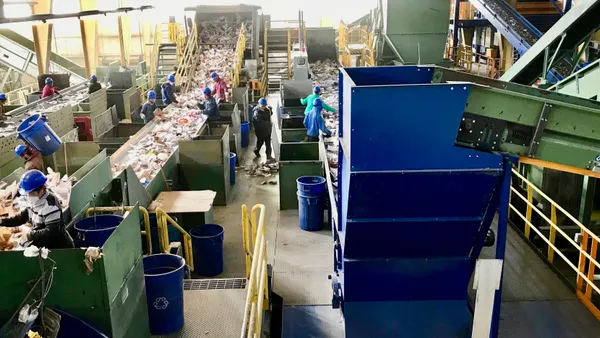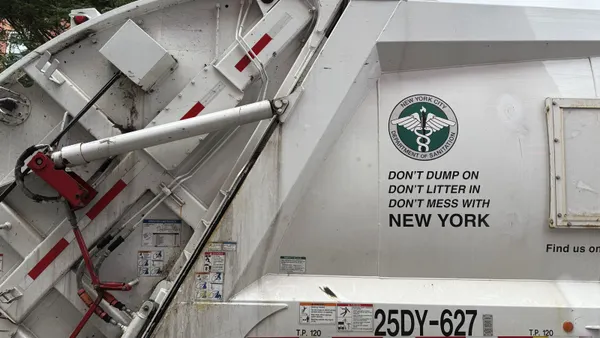Dive Brief:
- Last month, Iowa Governor Terry Branstad signed a law that prohibits any county or city in the state from enacting any type of bag ordinance, as reported by The Des Moines Register.
- The original bill, HF 295, received attention for its freeze on the state minimum wage. Yet the bill also included language prohibiting the adoption of any policy regulating "consumer merchandise" — which is defined to include bags, cups, bottles, packaging or other containers — that is different from or additional to existing state law.
- Bag regulations had been under consideration in Iowa City, Dubuqe and Marshall County. Advocates also saw potential opportunities in the cities of Coralville and North Liberty. They are currently exploring options to challenge the law or circumvent it through a different law.
Dive Insight:
As noted by the Register, some see the root of these tactics coming from a 2014 presentation that the socially conservative American Legislative Exchange Council delivered to the American Progressive Bag Alliance (ABPA). Funded by multiple companies in the plastics industry, the ABPA has been an active opponent to bag regulations throughout the country. While their efforts in California were ultimately unsuccessful, and multiple large cities now have varying policies, they have helped support and inspire stiff opposition to bag ordinances in many other areas.
Iowa is now the eighth state to enact a prohibition on bag ordinances. Plans for a 5-cent fee in New York City were recently waylayed by state lawmakers in favor of creating a task force to further study the issue. Action has continued in smaller states such as Massachusetts - which now has ordinances in at least 46 municipalities and counting - though has been more complicated in other states such as Texas.
Within all of these debates the question of whether bags can be efficiently recycled remains a key sticking point. Drop-off options and processing facilities for the material are available, and interest exists for expanding these opportunities, though many traditional material recovery facility operators and environmental advocates still aren't convinced. In the case of Iowa and the seven other states the future of these bags will now be decided by the open market rather than government regulators.










